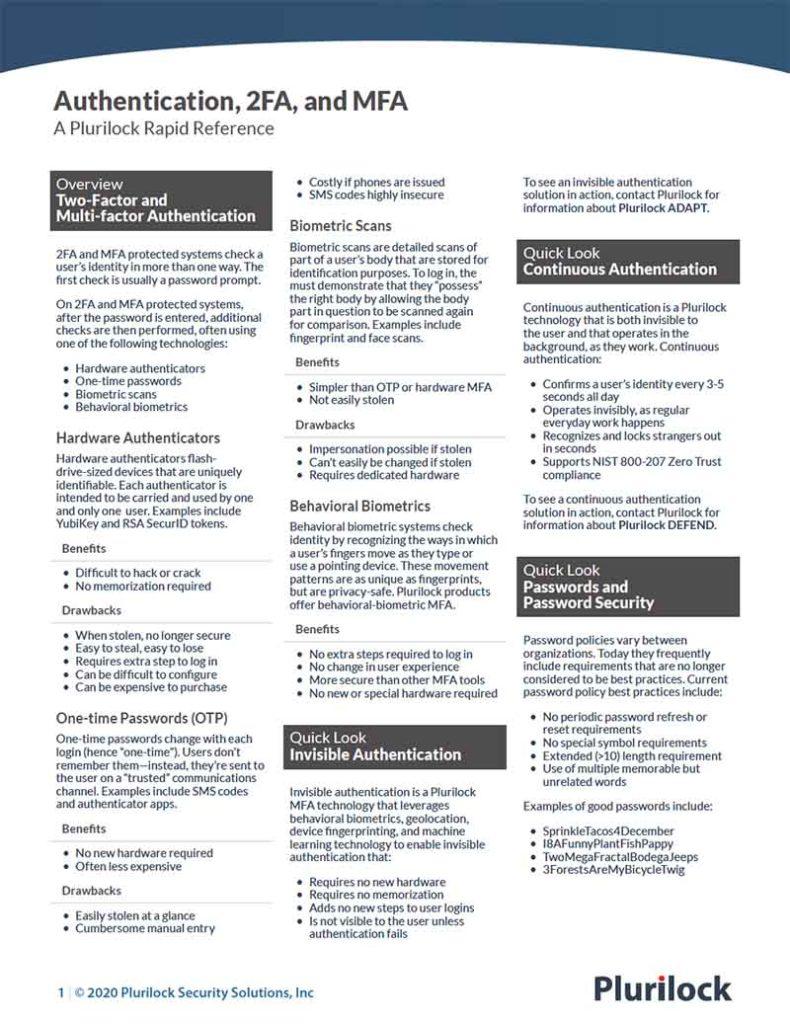Cybersecurity Reference > Glossary
Non-repudiation
Non-repudiation is a legal term that refers to the highly certain attribution of computing activity to a particular individual.
A system with strong non-repudiation capability is able to show evidence that a particular action was carried out by a particular individual, even if the individual claims not to have done so. In cybersecurity, non-repudiation is increasingly important to preempt claims from malicious users that they are not responsible for illicit activity, but rather the victims of having "been hacked," after which a third party used their account to engage in harmful or forbidden behavior.
Non-repudiation security features enable employers, auditors, or other figures responsible for security and security remediation to demonstrate persuasively that the user in question was, in fact, responsible for the activity in question, despite claims to the contrary.

2FA/MFA Rapid Reference
Authentication at a glance
Download the 2FA/MFA Rapid Reference now:
- 2FA and MFA basics and common solutions
- The benefits and drawbacks of each
- Glossary of authentication terms
2FA/MFA Rapid Reference
- 2FA and MFA basics and common solutions
- The benefits and drawbacks of each
- Glossary of authentication terms








